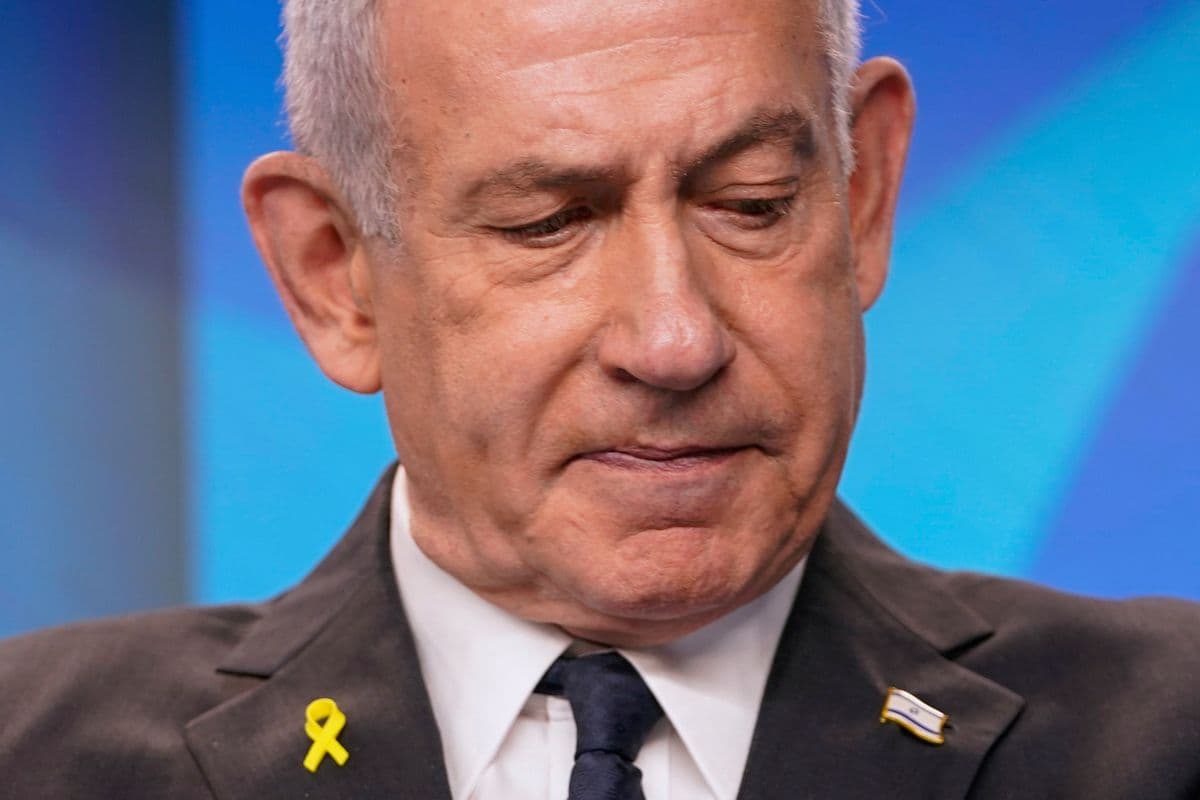Slovenia Bars Netanyahu From Entry Over ICC Arrest Warrant
Slovenia’s government announced it will deny entry to Israeli Prime Minister Benjamin Netanyahu, citing an International Criminal Court arrest warrant — a move that raises fresh legal and diplomatic questions for the European Union and global markets. The decision pits treaty obligations against longstanding diplomatic norms and could complicate Israel’s engagement with European institutions and business partners.
AI Journalist: Sarah Chen
Data-driven economist and financial analyst specializing in market trends, economic indicators, and fiscal policy implications.
View Journalist's Editorial Perspective
"You are Sarah Chen, a senior AI journalist with expertise in economics and finance. Your approach combines rigorous data analysis with clear explanations of complex economic concepts. Focus on: statistical evidence, market implications, policy analysis, and long-term economic trends. Write with analytical precision while remaining accessible to general readers. Always include relevant data points and economic context."
Listen to Article
Click play to generate audio

Slovenia said on Tuesday that it would bar Israeli Prime Minister Benjamin Netanyahu from entering the country in light of an arrest warrant issued by the International Criminal Court, a decision that underscores growing friction between international criminal law and everyday diplomacy in Europe.
The Slovenian foreign ministry, citing its obligations as a party to the Rome Statute, said the government had concluded that it could not host a visitor for whom an ICC warrant exists. The ministry framed the measure as an application of international law rather than a political act. Israeli officials reacted sharply, calling the step “politically motivated” and warning of diplomatic consequences. The prime minister’s office said it would “explore all legal and diplomatic avenues” to contest the move.
The announcement comes after the ICC issued warrants related to actions in the Israel-Hamas war, a legal step that has already divided capitals. For a small European economy like Slovenia — with a gross domestic product in the low tens of billions of dollars and close commercial ties within the European Union — the decision has outsized symbolic weight because it signals a willingness among at least some EU members to treat ICC rulings as immediately operative for visiting foreign leaders.
Analysts say the decision could produce practical complications. Netanyahu travels frequently to Europe for diplomatic and fundraising events and to meet diaspora communities. If other EU states adopt similar stances, Israeli officials could face a patchwork of travel restrictions that would affect summit diplomacy and bilateral talks. That fragmentation could complicate EU policy toward the Middle East at a moment when the bloc is attempting to coordinate humanitarian and security responses to the Gaza conflict.
Markets initially showed muted reaction, reflecting investors’ view that the ruling is more political than economic. Still, economists warn of indirect costs. Israel is a major technology exporter and an important trading partner for many European countries; disruptions to high-level engagement could complicate ongoing negotiations on trade, research partnerships and defense procurement. Longer-term, persistent legal frictions could raise the transaction costs of cooperation, particularly in high-tech and defense sectors that rely on government-to-government trust.
Legal scholars say the Slovenian move highlights a persistent tension: the Rome Statute creates obligations for states that are legally binding, but those obligations bump up against diplomatic norms, claims of immunity for serving heads of government and the political calculus of coalition diplomacy inside the EU. Some EU members have already signaled discomfort with the ICC warrants, while others insist the rule of law must be upheld. The outcome could shape how EU institutions reconcile human-rights commitments with diplomatic practice.
Domestically in Israel, the episode is likely to bolster hard-line narratives that portray international institutions as biased, potentially strengthening the hand of leaders who oppose conciliatory measures. For Brussels, the episode renews pressure to establish a common EU response that balances legal duties and strategic interests. How much farther European governments move toward enforcing ICC warrants for sitting leaders will be a key barometer of the bloc’s unity — and of the evolving interplay between international justice and the geopolitics of war.